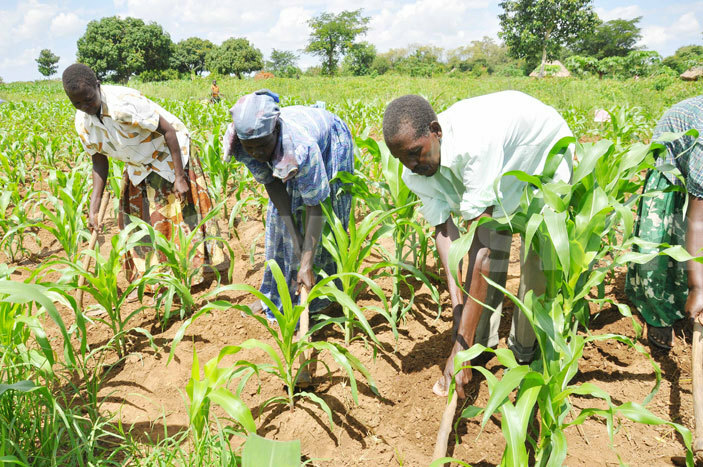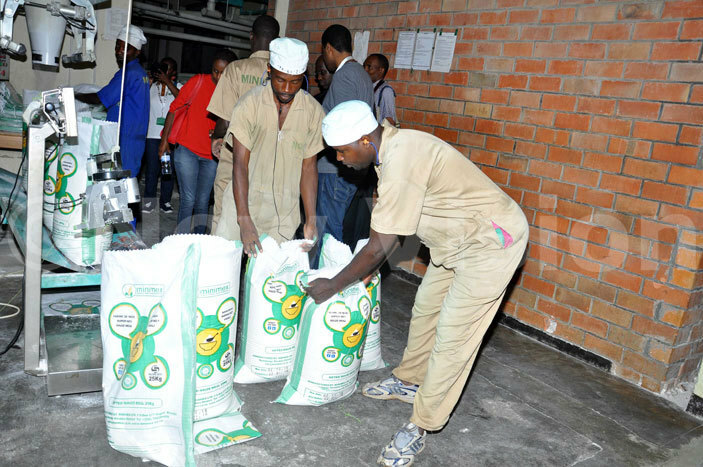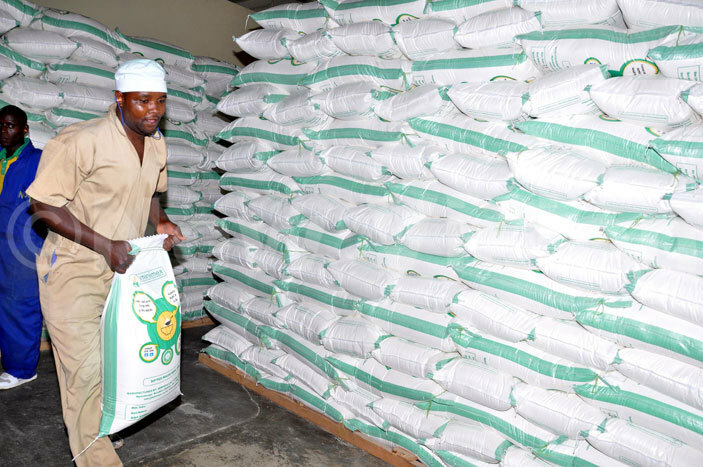Farmers advised to monitor market prices
Close to 95% of the households engaged in maize production are small-scale farmers, contributing over 75% of the marketable surplus of maize
Pausta Clessy Nuwagaba Photos by Francis Emorut
The Government has been urged to empower farmers with access to timely information on market prices and quantities so as to boost grain trade in Eastern and Southern African region.
"Access to timely information on prices and quantities plays a significant role in reducing the risk of losing money in market transactions and helps to promote grain trade," Pausta Clessy Nuwagaba the program officer Eastern Africa Grain Council (EAGC), told maize farmers.
"Efficient market information provision has quite a lot of positive benefits for farmers, traders and policymakers.Timely, efficient, reliable and current market information enables farmers to negotiate with traders from an informed position of greater strength."

Nuwagaba explained that maize is of great importance in Uganda's economic development given it is a commonly grown, consumed and utilized cereal crop in Uganda.
It covers about 45% of all cereal-growing land, and contributes about 15% of the total cash and food crop contribution to Uganda's GDP.
It is estimated that maize provides over 40% of the calories consumed in both rural and urban areas.
Close to 95% of the households engaged in maize production are small-scale farmers, contributing over 75% of the marketable surplus of maize, with land holdings of 0.35Ha.
Medium scale commercial farmers with average of 1.4Ha of land under maize production contribute the remaining 25%.
He pointed out that farmers rely on the same traders and middlemen (also known as agents) to obtain market information and as a result they are cheated.

He informed the audience that access to timely information also facilitates spatial distribution of produce from rural production zones to urban consuming zones by sending clear price signals regarding quantities and varieties required.
"This is why every grain stakeholder should add RATIN (Regional Agricultural Trade Intelligence Network) to their daily menu," he said.
RATIN has over 20 products and 36 major grain markets in the Eastern and Southern African Region. It provides a one-stop shop for Regional market information and supplies the Grain stakeholders with early warning market intelligence for efficient and competitive transactions.
"Market information services aim to increase the efficiency of agricultural markets and reduce market failure caused by information asymmetry.

Well analysed market information enables farmers to make planting decisions in line with the available demand and makes it possible for traders to make better decisions regarding the viability of produce storage."
Participants complained of middlemen who cheat them and called on government to reign on them.